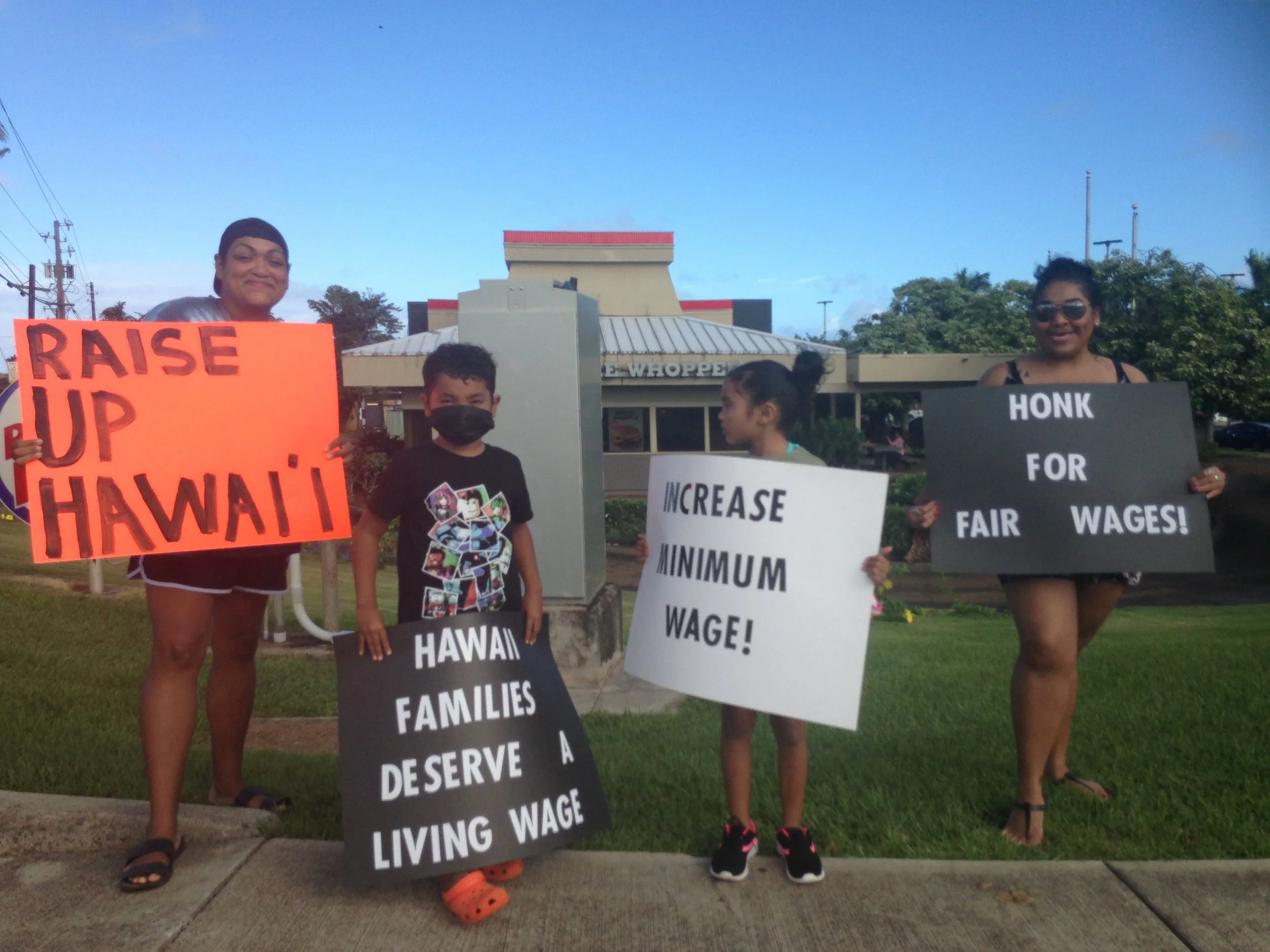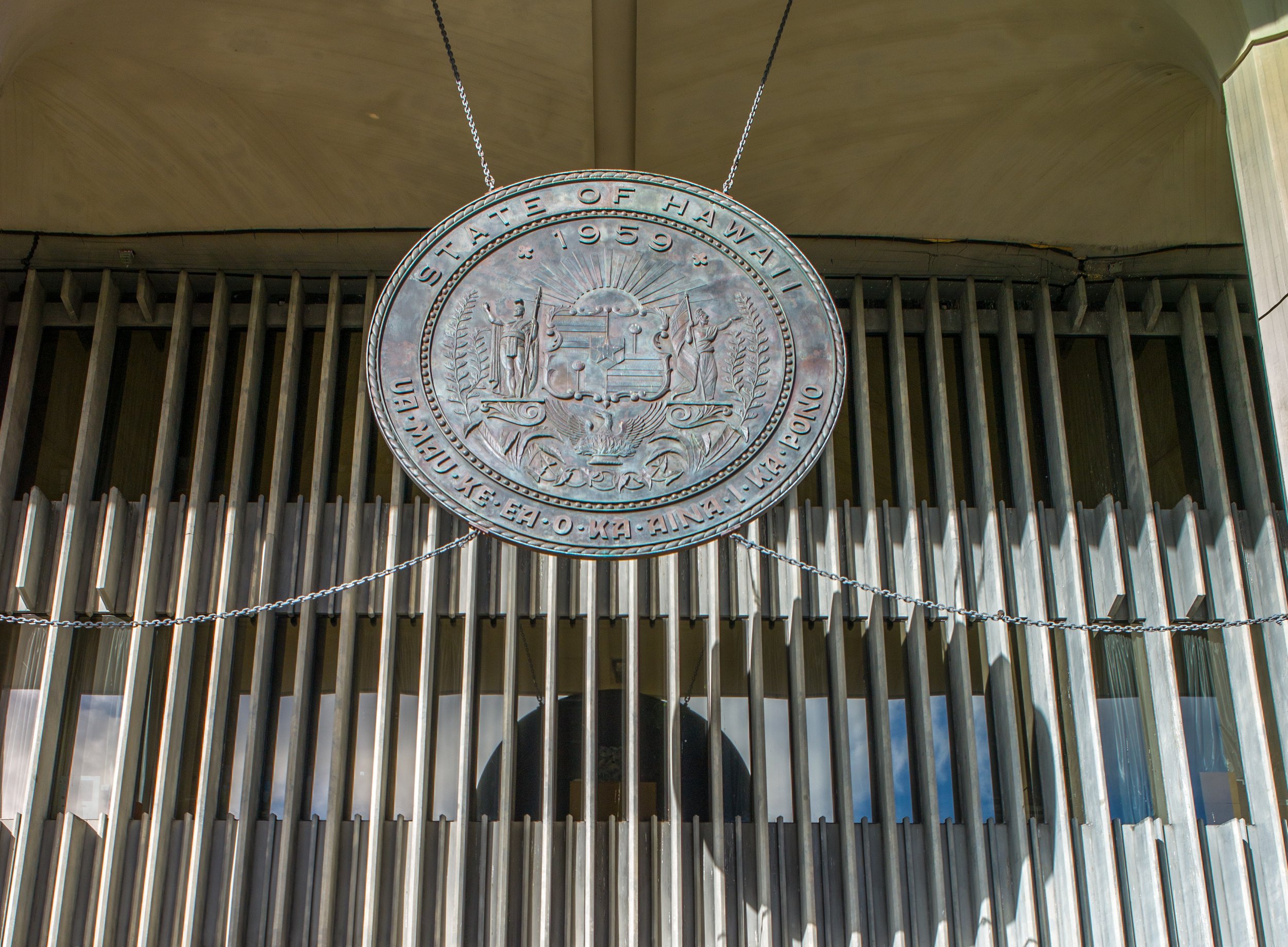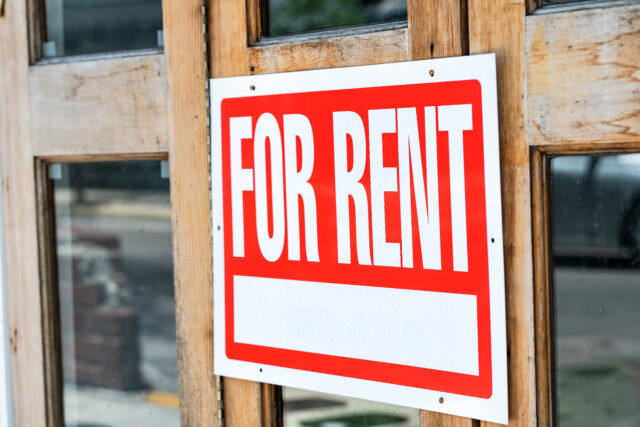
Hawaiʻi legislature 2022: smart spending could help big problems
The legislature has money available for almost any policy initiative imaginable, and every member of the house and senate is up for reelection.

Raise Up Hawaiʻi demands higher minimum wage
An increased minimum wage would not only put food on families’ tables but put money in their pockets for spending at local businesses.

A cautious legislature, locked in the capitol, played it safe
Critics hoped the pandemic would be the catalyst for significant changes to address longterm problems facing Hawaiʻi. But the budget shortfall dominated the 2021 session.

Lawmakers should pass tax bills to fix our upside-down tax system
Minimum wage earners should not be paying a higher percentage in taxes than those at the top.

Economic recovery should focus on working families
And Hawaiʻi’s lawmakers should pass legislation that supports workers’ well-being.

Hawaiʻi Appleseed Center stresses importance of city’s rent relief program
After just four hours, the city's new rent relief program was suspended because so many people applied. The $114 million in federal money is for back and future rent and utilities.

Bill would expand DA BUX food program
The measure is intended to provide low-income people easier access to healthier food choices and to help local farmers and ranchers.

Here’s how tax increases are shaking out in the Hawaiʻi legislature
Senators moved to raise income taxes on high earners, and the House passed capital gains and inheritance tax increases.

State offers more food stamp flexibility amid record participation
Most SNAP applications are now processed online and members can now use their EBT cards to make online purchases for pick-up at select Walmart locations.

Legislature considers increasing minimum wage amid pandemic
Advocates argue that raising the minimum wage will not only help workers make ends meet, but also stimulate the local economy.

Minimum wage hike up to timing
Hawaiʻi’s high cost of living, makes a minimum wage increase vital for low-income workers, including many who have been on the pandemic’s front lines.

Oʻahu affordable housing could include $1M homes under state guidelines; critics say that’s ‘out of whack’
Three factors—household income, family size and interest rates—are mainly used to compile annual housing affordability tables.

DOE improves free school breakfast program during pandemic
Hawaiʻi Appleseed has monitored the ranking for years, and has been working with the DOE to improve those numbers.

With no signs of housing prices cooling off, advocates push for government aid
Housing advocates want to change how we view housing. Instead of an investment, it should be seen as a necessity.

Hawaiʻi ranks 50th in low-income children participating in national school breakfast program
Some 25,559 low-income Hawaiʻi children participated in the School Breakfast Program during the 2019–2020 school year—or about 40 percent of those eligible.

Hawaiʻi legislators could boost minimum wage to $12 next year
A bill to raise Hawaiʻi’s minimum wage to $12 passed unanimously out of its first committee Monday, with more than 180 individuals and groups testifying in favor, most saying it should be much higher.

Gaps in Hawaiʻi eviction moratorium leave some renters scrambling for housing
The state eviction moratorium doesn’t protect every renter. And being kicked out when you’re unemployed makes finding housing much harder.

Furloughs likely to worsen delays of unemployment, Medicaid and SNAP claims
Governor Ige’s plan to furlough state workers could further increase the already-maddening length of time it takes to process critical services like unemployment.

Hawaiʻi landlords rejecting $8M in overdue rent
Some island landlords have rejected about $8 million in direct payments to cover the rents they’re owed because they do not have general excise tax licenses and are not paying taxes on their rental income.

As economic pain of pandemic widens, need for food stamps soars
The number of Hawaiʻi residents receiving SNAP benefits has risen from about 155,000 last year to 179,000—a 15.4 percent increase.
